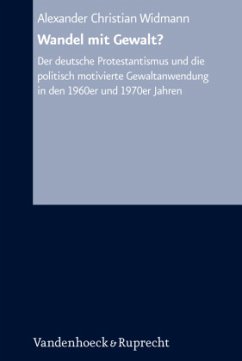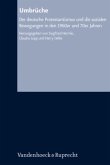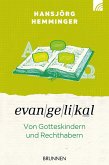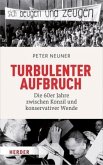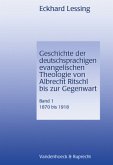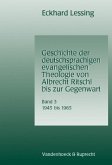Against the backdrop of Cold War polarization and student turmoil, the 1960s and 1970s implied for german protestantism rough times of struggle between societal change and persistence. Coping with the nazi past and their obedient theological tradition, protestant churches in divided Germany discussed moral and political issues on wether to justify violent social change in the northern hemisphere, but first and foremost in the Third World. Initiated by the ecumenical World Conference on Church and Society in 1966 the past-time-driven german debates on a »Theology of Revolution«, violent student protest and the World Council of Churches' »Programme to combat Racism«turned out even more peculiar and dramatic when leftist-terrorism hit the Federal Republic of Germany, ending up in a public controversy on protestant sympathy for terror and murder.
Hinweis: Dieser Artikel kann nur an eine deutsche Lieferadresse ausgeliefert werden.
Hinweis: Dieser Artikel kann nur an eine deutsche Lieferadresse ausgeliefert werden.

